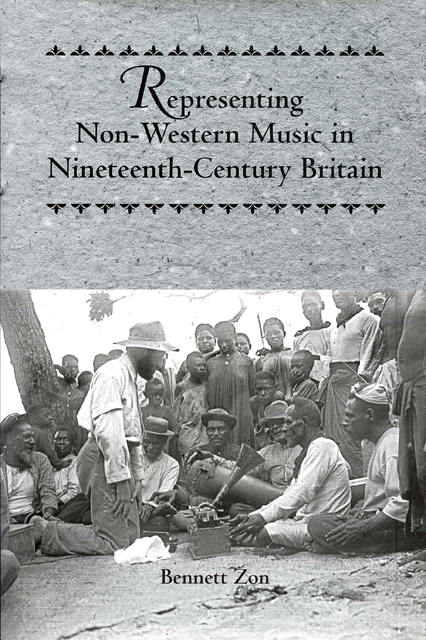Book contents
- Frontmatter
- Dedication
- Contents
- List of Illustrations
- Preface
- Acknowledgments
- Introduction Humanizing the Musical Savage: Orientalism and Racism in the History of British Ethnomusicology
- Part One Early Anthropological Influences
- Part Two Musicology in Transition to Evolution
- Part Three Individualism and the Influence of Evolution: Charles Samuel Myers and the Role of Psychology
- Part Four Retaining Cultural Identity: A. H. Fox Strangways and the Problems of Transcription
- Epilogue The “Ethnomusicology” in Long Nineteenth-Century Representations of Non-Western Music
- Works Cited
- Index
- Eastman Studies in Music
Chapter Eleven - From Individualism to Individual Differences
Published online by Cambridge University Press: 10 March 2023
- Frontmatter
- Dedication
- Contents
- List of Illustrations
- Preface
- Acknowledgments
- Introduction Humanizing the Musical Savage: Orientalism and Racism in the History of British Ethnomusicology
- Part One Early Anthropological Influences
- Part Two Musicology in Transition to Evolution
- Part Three Individualism and the Influence of Evolution: Charles Samuel Myers and the Role of Psychology
- Part Four Retaining Cultural Identity: A. H. Fox Strangways and the Problems of Transcription
- Epilogue The “Ethnomusicology” in Long Nineteenth-Century Representations of Non-Western Music
- Works Cited
- Index
- Eastman Studies in Music
Summary
The growth of individualism found in anthropological literature is a microcosm of a larger intellectual tendency situating the individual within broader scientific methodologies. As Pitt Rivers’s previously cited criticisms of Rowbotham imply (see chapter 10), in anthropology individualism was increasingly subsumed into a Darwinian discourse. The same process occurs in psychology, and in the case of music it is typified by the emergence of the idea of a musical faculty. In the musical faculty, individualism and evolutionism coalesce into theories of the origin of music—of especial concern for Myers, in his efforts to define the beginnings of non-Western music. Indeed, in Myers’s terms the musical faculty is an essential evolutionary feature of human musicality, and without it music of any kind could not be fully understood.
Individualism, Evolution, and the Emergence of a Musical Faculty
The idea of a musical faculty is common in British literature on music from the period of the 1880s, and is typified in the work of the psychologist and writer on music Edmund Gurney (1847–88). Although Myers eventually rejected Gurney as anachronistic, he would have read his work with considerable and vigorous interest. Gurney’s magisterial book, The Power of Sound (1880), must have been an engrossing read, and although it may well have been a book Myers loved to hate, there are some similarities that are worth noting. Both Gurney and Myers situate their arguments against the Spencerian notion of evolution, albeitperhaps for rather different reasons. For Myers the Spencerian argument of song emerging from speech cannot be valid. As we shall see later in greater detail, Myers takes a view of the origins of music not unlike his view on accrescence recapitulated in his article “Principles of Development” in A Psychologist’s Point of View (1933). In “The Ethnological Study of Music” (1907), for example, he writes initially with an idea that sounds promisingly Spencerian: “We may regard musical and verbal language as derived from a common source, namely from the tendency to give vent to feelings by vocal expression.” He soon retracts this, however, by indicating that other theories have to be considered: “There are, however other theories as to the origin of music which lay stress on more special factors. One of the objects of the ethnological study of music should be the determination of the importance of these factors.”
- Type
- Chapter
- Information
- Representing Non-Western Music in Nineteenth-Century Britain , pp. 177 - 195Publisher: Boydell & BrewerFirst published in: 2023



